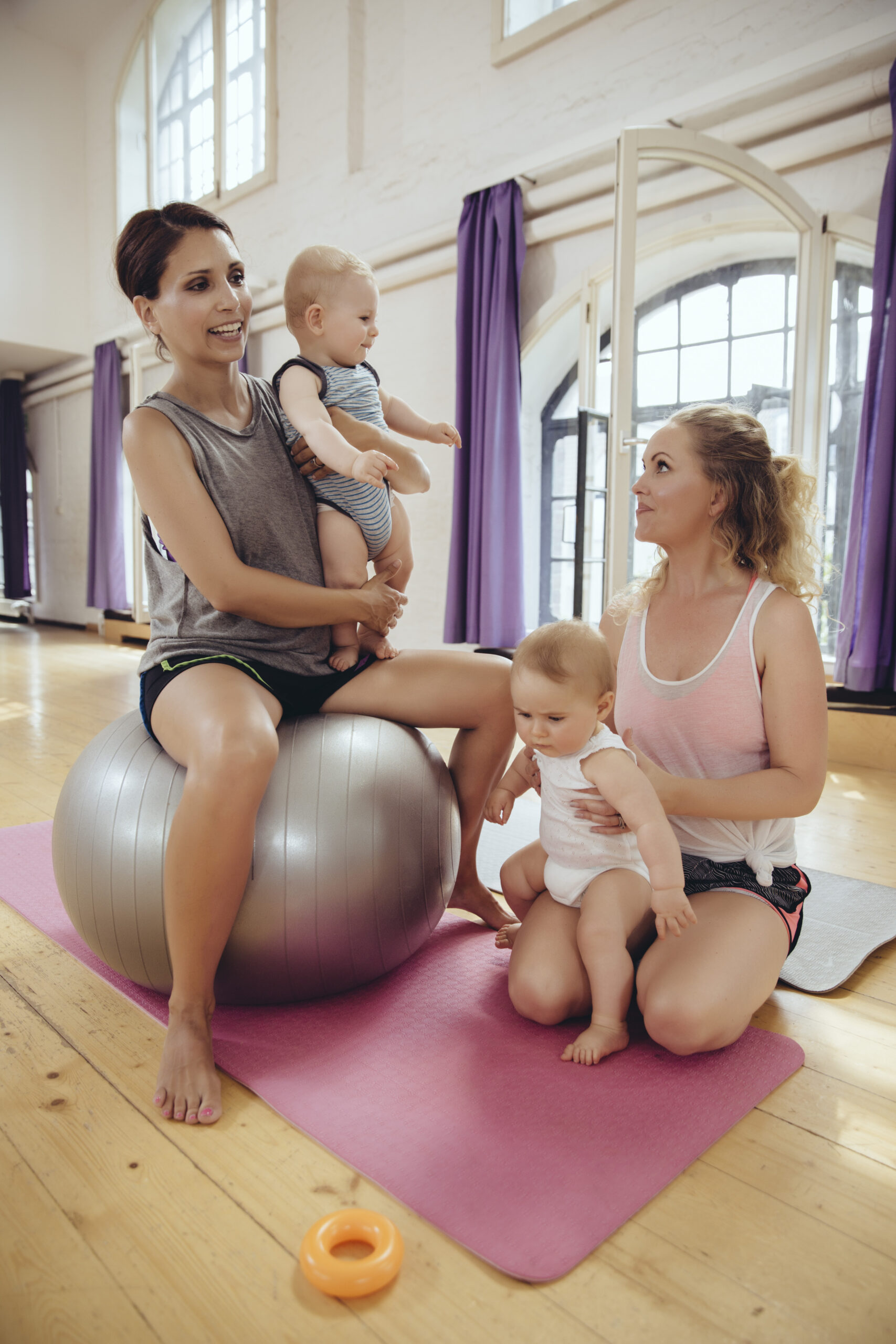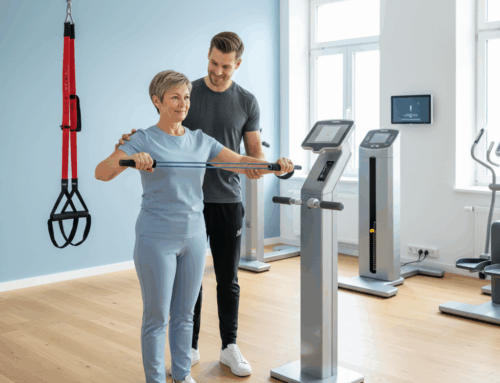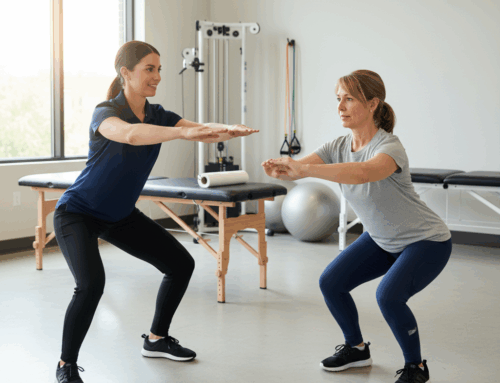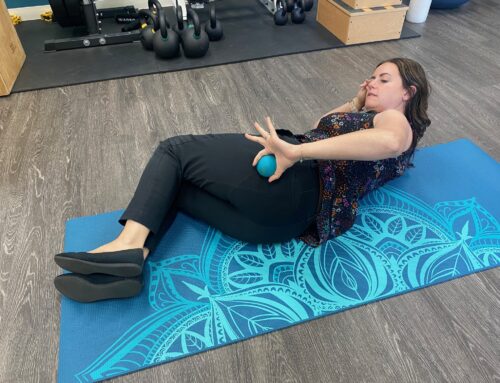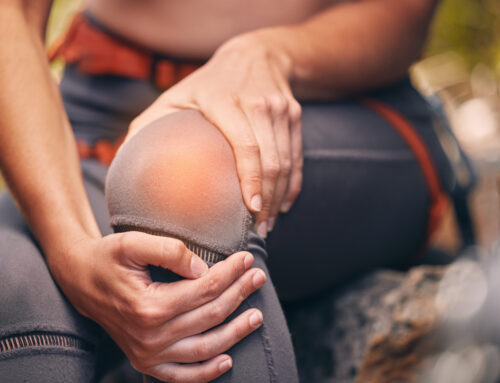The postpartum period, often called the “fourth trimester,” is a critical time for new mothers as they recover from childbirth and adjust to life with a newborn. While much attention is given to pregnancy and delivery, many women find themselves without adequate support for their recovery in the weeks and months that follow.
Physical therapy is a crucial yet often overlooked component of postpartum care. From addressing lingering pain to restoring core and pelvic floor strength, postpartum physical therapy can make a significant difference in a new mother’s health and well-being. Yet, many women are unaware of its benefits or don’t realize they need it until issues arise.
At Battle Born Health in Reno, NV, we believe that every mom deserves the opportunity to heal properly and regain strength after childbirth. In this blog, we’ll explore the changes a woman’s body undergoes in the fourth trimester, how physical therapy supports recovery, and why seeking care sooner rather than later is essential for long-term health.
Understanding the Fourth Trimester: What Happens to a Mom’s Body?
The “fourth trimester” refers to the first 12 weeks after childbirth—a time of significant physical and emotional adjustment. While most new moms expect some level of fatigue and discomfort, many are unprepared for the full scope of changes their bodies experience during this period.
Physical Changes
After birth, a mother’s body begins the process of healing and rebalancing. Some of the most common postpartum physical challenges include:
- Pelvic floor dysfunction: The pelvic muscles are stretched and weakened during pregnancy and childbirth, leading to issues like incontinence, pelvic pain, or even organ prolapse.
- Diastasis recti: The separation of abdominal muscles can cause core instability, back pain, and difficulty regaining strength.
- Postural imbalances and back pain: Carrying a baby, breastfeeding, and lack of sleep can contribute to postural misalignment and chronic pain.
- C-section recovery: Women who undergo cesarean births face additional challenges, such as scar tissue restrictions and limited core engagement.
Emotional and Mental Health Challenges
The postpartum period isn’t just about physical recovery—it also involves emotional and mental adjustments. Hormonal fluctuations, sleep deprivation, and the demands of caring for a newborn can lead to increased stress, anxiety, and even postpartum depression. When a mother’s body isn’t functioning optimally, these emotional challenges can be even more overwhelming.
Many women assume that discomfort and dysfunction after birth are “normal” and something they must simply endure. However, postpartum physical therapy can address these concerns early on, helping new moms regain strength, mobility, and confidence in their bodies.
How Physical Therapy Supports Postpartum Recovery

Physical therapy plays a vital role in helping new moms heal, regain strength, and prevent long-term complications after childbirth. While every woman’s postpartum experience is unique, physical therapy provides targeted, evidence-based care to address common challenges and improve overall well-being.
Restoring Core and Pelvic Floor Strength
One of the most critical aspects of postpartum recovery is rebuilding core stability and pelvic floor function. Pregnancy and childbirth put significant strain on these muscles, leading to weakness, discomfort, and even dysfunction. Physical therapy helps:
- Rehabilitate the pelvic floor to address incontinence, prolapse, and pain.
- Improve core strength to reduce back pain and restore stability.
- Retrain breathing patterns to support core engagement and overall function.
READ: Why Diversity of Movement is So Important
Improving Mobility and Reducing Pain
New moms often experience pain in the back, hips, and shoulders due to pregnancy-related changes, the physical demands of caring for a newborn, and postural imbalances. A postpartum physical therapist can:
- Guide gentle stretching and mobility exercises to ease stiffness.
- Address musculoskeletal imbalances caused by pregnancy and delivery.
- Teach proper body mechanics for lifting, carrying, and breastfeeding to prevent further strain.
Addressing Postpartum Complications
For some women, postpartum recovery is complicated by issues such as:
- C-section scar adhesions that limit movement and cause discomfort.
- Diastasis recti (abdominal separation) that weakens the core and leads to instability.
- Pelvic pain or nerve dysfunction resulting from labor and delivery trauma.
Through manual therapy, targeted exercises, and education, physical therapists help new moms overcome these challenges and restore function.
Postpartum recovery is not just about healing—it’s about regaining strength and confidence in your body. With professional support, new moms can return to their daily activities feeling stronger and more resilient.
When to Start Postpartum Physical Therapy and What to Expect
Many new moms wonder when they should start physical therapy after giving birth. The answer depends on individual recovery, the type of delivery, and any specific concerns they may have. However, in most cases, early intervention leads to better outcomes.
When to Start Postpartum Physical Therapy
- Vaginal Birth: Moms can typically begin gentle pelvic floor and core rehabilitation as early as 2-6 weeks postpartum, depending on how they feel and their doctor’s approval.
- Cesarean Section: Women who had a C-section may need more time to allow for proper incision healing. However, therapy can begin as early as 6 weeks postpartum with a focus on scar mobility and core engagement.
- Persistent Symptoms: If issues like incontinence, pelvic pain, or diastasis recti persist beyond the first few months postpartum, physical therapy can still provide significant benefits—even years after childbirth.
What to Expect During a Physical Therapy Session
A postpartum physical therapy session at Battle Born Health in Reno, NV is personalized to each mom’s needs. Here’s what a typical visit includes:
- Comprehensive Assessment: Evaluating core strength, pelvic floor function, posture, and any pain or discomfort.
- Hands-On Techniques: Soft tissue massage, scar mobilization (for C-sections), and manual therapy to improve mobility.
- Targeted Exercises: Strengthening the core and pelvic floor, improving flexibility, and correcting postural imbalances.
- Education & Guidance: Teaching proper body mechanics for daily activities like lifting the baby, carrying car seats, and breastfeeding positions to reduce strain.
Many moms see noticeable improvements in their strength, comfort, and mobility after just a few sessions. The key is consistency and a plan tailored to their unique postpartum journey.
Empowering Moms: Long-Term Benefits of Physical Therapy
Postpartum recovery doesn’t end after a few weeks—it’s an ongoing process that impacts a mother’s health for years to come. Investing in physical therapy during the fourth trimester can prevent long-term complications and help moms feel stronger, more confident, and better equipped for the demands of motherhood.
Preventing Long-Term Issues
Many postpartum symptoms, such as mild incontinence or back pain, are often dismissed as “normal” parts of motherhood. However, without proper treatment, these issues can persist and worsen over time. Physical therapy helps prevent:
- Pelvic organ prolapse, a condition where pelvic organs shift due to weakened support structures.
- Chronic back, hip, or shoulder pain, often caused by postural imbalances and muscle weakness.
- Diastasis recti complications, such as core instability and poor posture.
Improving Confidence and Quality of Life
Motherhood is physically demanding, and when a mom feels strong and pain-free, she can better enjoy time with her child. Postpartum physical therapy helps moms regain:
- Core strength and stability, making daily tasks easier.
- Better posture and movement patterns, reducing fatigue and discomfort.
- Overall well-being, with a focus on long-term health rather than just short-term recovery.
Encouraging Self-Care in the Postpartum Period
New moms often put their own needs last, focusing entirely on their baby’s well-being. However, prioritizing postpartum recovery through physical therapy is an essential act of self-care. When a mother takes care of her body, she has more energy, less pain, and a greater ability to show up for her child and herself.
Every mom deserves the support needed to heal fully. With professional guidance from Battle Born Health, postpartum physical therapy can be the key to feeling strong, pain-free, and empowered in the months and years after birth.
Prioritizing Postpartum Recovery: Every Mom Deserves Care
The postpartum period is a time of immense change, and every mom deserves the support needed to heal properly. While the focus is often on the baby, a mother’s health is just as important. Physical therapy in the fourth trimester helps new moms regain strength, reduce pain, and prevent long-term complications—empowering them to move confidently through motherhood.
At Battle Born Health in Reno, NV, we’re dedicated to supporting women through every stage of postpartum recovery. Whether you’re experiencing discomfort, struggling with core weakness, or simply want to ensure a healthy recovery, our specialized physical therapy services can help.
Don’t wait to prioritize your health. Schedule a postpartum physical therapy evaluation today and take the first step toward long-term wellness.

